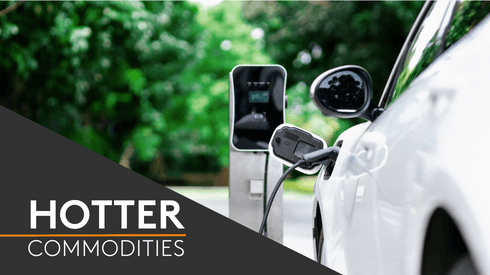The European Commission has proposed to delay an incoming tariff on battery electric vehicles (BEV) together with a fund of up to €3 billion ($3.2 billion) in subsidies to support the battery supply chain in Europe in a memorandum published on Wednesday December 6.
As part of Brexit legislation, a 10% tariff on the trade of BEV between the EU and the UK was due to be enforced from January 1, 2024. The legislation demanded that 45% of total electric vehicle parts of any BEV traded between the EU and UK be sourced from either the UK or the EU, or be subjected to the tariff.
However, the European Commission has decided that this tariff should be delayed until December 31, 2026. The EU has proposed a legally binding clause that no further extensions can occur.
“Since [the legislation agreement in 2020], we witnessed a number of circumstances not foreseen at the time. This includes Russia’s aggression against Ukraine and soaring energy prices, as well as increased competition from new international subsidy support schemes. This has led to a situation where the scaling-up of the European battery ecosystem has been slower than initially anticipated.” Maroš Šefcovic, vice president of the European Commission said in a statement on Wednesday.
In recent months, automakers have been lobbying the Commission for a delay, citing the lack of supply chain infrastructure in place that would support a ramp-up in “tariff friendly” BEV production.
The European Automobile Manufacturers Association (ACEA) welcomed the proposal to delay the tariff.
“Failure to approve the proposal would result in reduced competitiveness of our exports. It would also have a negative knock-on impact on demand for European batteries and battery materials, based on lost BEV market share to third-country competitors.” Sigrid de Vries, director general of the ACEA said in a statement on Wednesday.
There was concern that if the tariff came into effect in 2024 it would decrease the competitiveness of EU and UK BEVs against Chinese electric vehicles that have rapidly gained market share in Europe in figures published earlier this year.
In Europe, registrations of Chinese branded BEVs had grown by 150% year on year in the first two thirds of 2023. This corresponded to an 8.4% market share of all new BEV registrations, according to data published by Schmidt Automotive Research.
Battery support fund
To aid the development of the batteries in the EU, the Commission will launch a €3 billion fund in 2024. The fund will “possibly be as a fixed premium to manufactured battery capacity to European manufacturers… to create important spill-over effects on the entire European battery value chain,” the Commission stated in the memorandum.
The fund will also enable EU member states to award financial support to specific projects in their territories that support the manufacture of sustainable batteries.
“Such an extension would avoid damaging tariffs on the very vehicles we need consumers to buy, allow UK and EU manufacturers to compete with the rest of the world and, crucially, give the European battery industry time to catch up.” Mike Hawes, chief executive of the Society of Motor Manufacturers and Traders, said in a statement on Wednesday.
A majority of the 27 member states must agree to the proposal for it to come into effect. Many European governments have signaled already this year their support for a delay to the tariffs.
Keep up to date with the latest news and insights on our dedicated battery materials market page.






